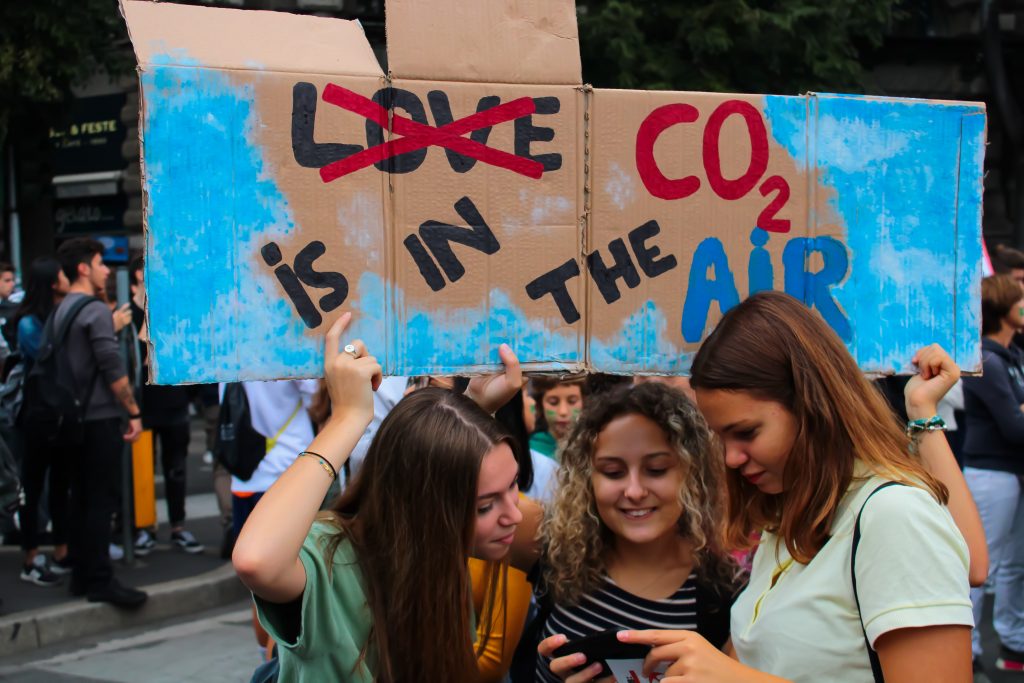Carbon dioxide CO2 emissions are one of the leading contributors to climate change, and reducing them is crucial for protecting the planet and its inhabitants. One way to achieve significant reductions in CO2 emissions is to target a 50% reduction from current levels. Such a reduction would have a powerful positive impact on the environment, economy, and human health.
IMPACTS DUE TO REDUCTION IN CO2 EMISSIONS
ENVIRONMENTAL IMPACT
A 50% reduction in CO2 emissions would have a noteworthy influence on the atmosphere. It would slow the rate of global warming and help mitigate the weather change effects. This would lead to a reduction in life-threatening weather conditions for example storms, floods, and heat waves, which would in turn help to protect biodiversity and natural habitats. Additionally, it would reduce the acidification of oceans and the risk of sea-level rise.
One of the most significant environmental benefits of a 50% reduction in CO2 emissions would be the preservation of natural habitats and biodiversity. Climate change is causing habitats to shift, and species are struggling to adapt. Some species are even facing extinction as a result of climate change. However, a 50% reduction in CO2 emissions would slow the rate of global warming, which would give habitats and species more time to adapt. Additionally, it would also reduce the risk of sea-level rise, which would help to protect coastal habitats such as marshes and mangroves.
ECONOMIC IMPACT
Reducing CO2 emissions by 50% would also have a positive economic impact. It would lead to the creation of new jobs in clean energy and energy efficiency, and it would also reduce the costs associated with climate change such as damage to infrastructure and health care expenses. Additionally, it would also increase energy security by reducing dependence on fossil fuels.
The transition to clean energy and energy efficiency would lead to the creation of new jobs in fields such as solar and wind power installation, energy-efficient building retrofits, and electric vehicle manufacturing. These jobs tend to be well-paying and provide long-term career opportunities. Additionally, reducing CO2 emissions would also reduce the costs associated with climate change such as damage to infrastructure and health care expenses. For example, reducing air pollution would lead to fewer cases of respiratory illness and heart disease, which would in turn reduce health care expenses.
HEALTH IMPACT
A 50% reduction in CO2 emissions would also have a positive impact on human health. It would reduce air pollution, which is linked to a range of health problems including respiratory illness and heart disease. Additionally, it would also reduce the number of extreme weather events, which can lead to injuries and deaths.
Air pollution is a major public health problem, and it is linked to a range of health problems including respiratory illness and heart disease. A 50% reduction in CO2 emissions would lead to a reduction in air pollution, which would in turn improve public health. Additionally, reducing the number of extreme weather events would also have a positive impact on public health. Extreme weather events can lead to injuries and deaths, and they can also disrupt access to health care.
CONCLUSION
A 50% reduction in CO2 emissions would have a powerful positive impact on the environment, economy, and human health. It is a crucial step in protecting the planet and its inhabitants, and it is achievable with the right policies and investments in clean energy and energy efficiency. Therefore, governments and businesses need to work together to achieve this goal.
In addition, Governments and other stakeholders should also focus on creating a sustainable future by promoting sustainable transportation systems, sustainable agriculture, and sustainable waste management. This will not only help in reducing CO2 emissions but also in creating a healthier and more equitable society. The world needs to act now and take bold actions to combat climate change.
For more information, click here.




